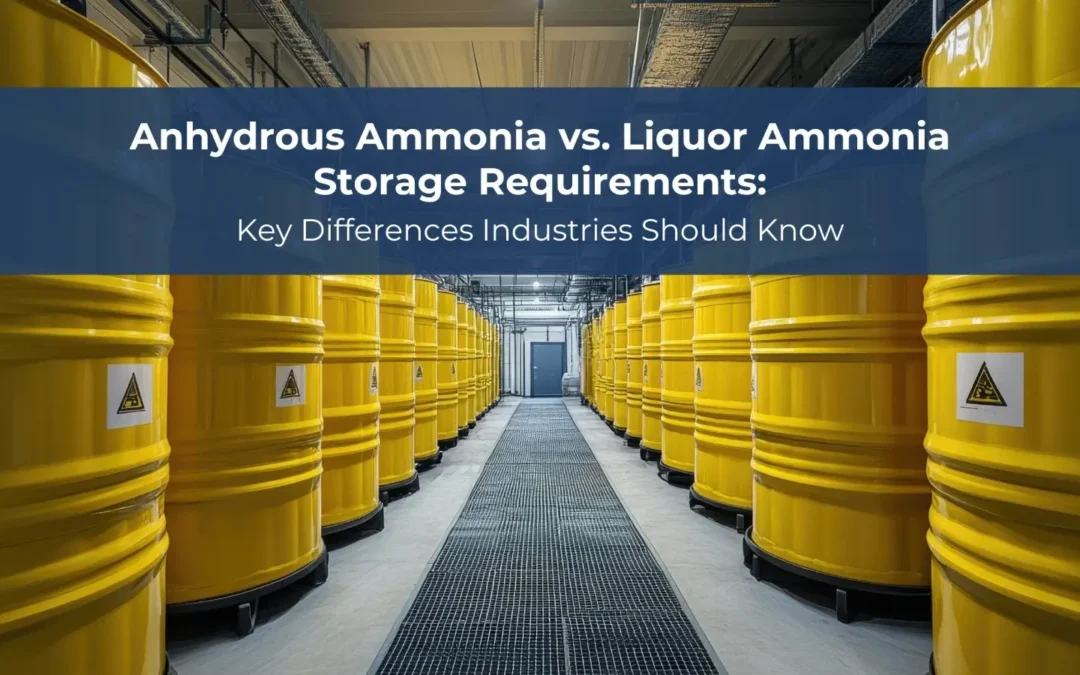Ammonia has been a popular choice for agricultural needs due to its numerous benefits. With its high nutrient density, efficiency, environmental advantages, and economic benefits, ammonia plays a crucial role in promoting healthy crop growth and improving agricultural productivity.
Background
Ammonia Production
Anhydrous ammonia, which is a colorless gas with a pungent odor, is produced by combining nitrogen (N) from the air with hydrogen (H) from natural gas or other hydrocarbon sources. This gas can be easily compressed and transported as a liquid under pressure.
Advantages
Nutrient Density
One of the primary advantages of ammonia as a fertilizer is its nutrient density. With 82% nitrogen, ammonia is a highly concentrated source of this element and is commonly used in agriculture. Nitrogen is essential for plant growth as it is involved in critical processes like protein synthesis and photosynthesis.
Efficiency
Ammonia is highly efficient as a fertilizer due to its rapid absorption by plants. The application of ammonia to soil leads to its rapid conversion into nitrate, which is the primary form of nitrogen utilized by plants. This rapid conversion allows for quick and effective nutrient uptake, promoting robust and healthy crop growth.
Environmental Benefits
Using ammonia as a fertilizer can also have significant environmental benefits. By efficiently providing nitrogen to plants, ammonia reduces the need for excessive applications of other nitrogen-containing fertilizers that can contribute to nutrient pollution in waterways. Compared to other nitrogen fertilizers, ammonia production emits lower greenhouse gasses, making it less energy-intensive.
Economic Benefits
Ammonia’s high nutrient density and efficiency make it a cost-effective choice for farmers. Ammonia fertilizers can increase crop yields and lower input costs, ultimately benefiting farmers by increasing profitability and providing consumers with more affordable food.
Application
Ammonia Forms
Anhydrous ammonia, the purest form of ammonia, is frequently utilized as a fertilizer, while other nitrogen-based fertilizers like ammonium nitrate, urea, and ammonium sulfate comprise ammonia as a component. Each form has its unique advantages, and the choice of which to use depends on factors such as soil type, crop requirements, and regional regulations.
Application Methods
There are several methods for applying ammonia to agricultural fields, including direct injection, broadcast spreading, and fertigation. Injecting anhydrous ammonia directly into the soil through direct injection minimizes the loss of ammonia to the atmosphere and reduces the risk of nutrient runoff. Broadcast spreading involves applying granular or liquid ammonia-based fertilizers on the soil surface. Fertigation, on the other hand, involves the application of ammonia-based fertilizers through irrigation systems.
Best Practices
To maximize the benefits of ammonia as a fertilizer, farmers should follow best practices for its application. This includes applying the appropriate amount of fertilizer based on soil tests, using the proper application method for the specific form of ammonia, and timing the application to coincide with periods of optimal plant growth.
Considerations
Safety Precautions
When handling ammonia, it is essential to follow safety precautions due to its corrosive and toxic nature. This includes using proper protective equipment, such as gloves, goggles, and respiratory protection, and ensuring that ammonia is stored and transported securely.
Potential Environmental Impact
While ammonia can offer significant environmental benefits when used responsibly, an improper application can lead to negative consequences. Excessive ammonia application can contribute to nutrient pollution in waterways, leading to eutrophication and harmful algal blooms. Fine particulate matter can be formed due to ammonia emissions, contributing to air pollution.
Future Trends
Technological Advancements
Advancements in technology are leading to more sustainable and efficient use of ammonia as a fertilizer. Innovations in precision agriculture, such as variable-rate application and real-time monitoring, can help farmers apply ammonia more accurately and reduce nutrient losses.
Sustainable Agriculture
The increasing global population will require sustainable agricultural practices that maintain high crop yields while minimizing environmental impacts. The responsible use of ammonia as a fertilizer can play a crucial role in meeting this demand and supporting global food security.
Conclusion
Ammonia offers numerous advantages as a fertilizer, including its high nutrient density, efficiency, environmental benefits, and economic value. By understanding the best practices for ammonia application and considering potential safety and environmental concerns, farmers can optimize the benefits of ammonia in their agricultural operations. The future is likely to see ammonia continue to play a significant role as a fertilizer, given the increasing demand for sustainable agriculture and advancing technology.
FAQs
1. What is the primary nutrient provided by ammonia fertilizers?
A. Ammonia fertilizers primarily provide nitrogen, an essential element for plant growth and development.
2. How is ammonia applied to agricultural fields?
A. Ammonia can be applied through various methods, including direct injection, broadcast spreading, and fertigation.
3. What safety precautions should be followed when handling ammonia?
A. Secure storage and transportation of ammonia, along with the use of appropriate protective gear like gloves, goggles, and respiratory protection, are essential safety measures to be followed while handling ammonia.
4. Can ammonia contribute to environmental pollution?
A. While responsible use of ammonia can offer environmental benefits, an improper application can contribute to nutrient pollution in waterways and ammonia emissions that contribute to air pollution.
5. How does the use of ammonia as a fertilizer align with sustainable agriculture practices?
A. To support sustainable agriculture, ammonia can serve as a crucial factor by providing an economical and efficient source of nitrogen, leading to a decrease in the use of other nitrogen fertilizers and promoting higher crop yields. When used responsibly and in conjunction with precision agriculture technologies, ammonia can contribute to minimizing the environmental impacts of agricultural practices while maintaining food security.














